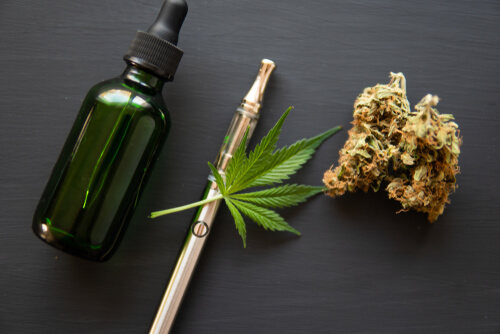
Leafreport shared the results of its in-depth analysis of cannabidiol products that it tested over the last two years. As per the findings, up to 60% of those cannabidiol products put through third-party laboratory tests were over 10% away from the labeled levels. It is not a CBD label accuracy level to be proud of for the industry.
How Does Leafreport Work?
Leafreport compares its labeled cannabinoid potency to the level that the laboratory testing discovered to measure how accurate cannabidiol products are in this regard. It bases the accuracy on phytocannabinoid quantities that are inside 10% of the labeled levels.
Right through 2021, Leafreport delivered 221 cannabidiol items from 111 CBD brands for testing in third-party laboratories. The products included 35 cannabidiol oil items, 40 CBD topicals, 22 CBD beverages, 40 CBD edibles, 29 CBD coffee, and 29 CBD tea items. To get A grades, the items should be inside 10% of those aforesaid levels. The items that were way off the levels got a B grade or worse grade.
Findings
According to the report, 28% of items got the worst grade for their cannabidiol levels that were over 30% fewer than the labeled levels. The cannabidiol levels of those items were off from their labeled quantities by 25% or so. The worst test results apply to CBD beverages, with just 18% of those items matching the labeled quantities and 2 items lacking cannabidiol. Up to 44% of the 97 items advertised as full-spectrum cannabidiol or broad-spectrum cannabidiol were not labeled correctly. In the topical, edible, and beverage categories, more items got an F grade as compared to an A grade.
As per Leafreport product manager Gal Shapira, the outputs were quite surprising. Leafreport expected some mislabeled CBD products but did not expect that a majority of those would have wrong labels. Interestingly, the number of cannabidiol items in the market might be excessive or too few.
Regulatory Delay On Cannabidiol
In 2019, the FDA established the CBD Policy Advisory Working Group, and it has issued some non-binding guidelines associated with cannabidiol items since then. However, there have not been any CBD regulations from the Food and Drug Administration because of a lack of research on cannabidiol.
Hopefully, researchers look more into CBD and make the FDA put regulatory measures in place for the industry. If it happens, the mislabeled cannabidiol product count might come down.
